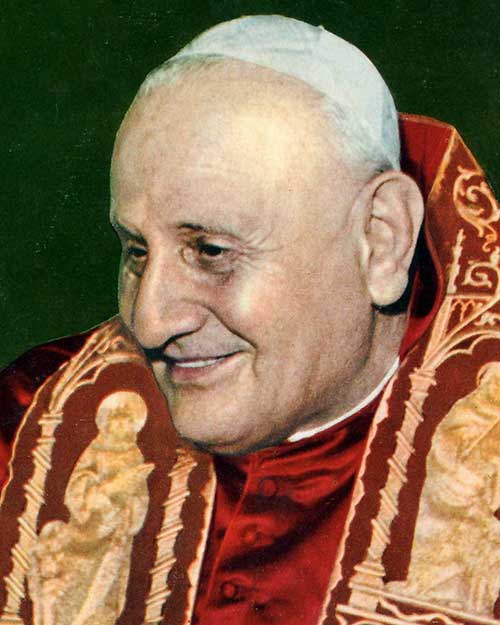
Roman Catholics celebrate the feast of Pope John XXIII today, the anniversary of the Second Vatican Council, which he called. Many Anglican Churches (and others) celebrate his feast on 4 June, having moved it from June 3, the day of his death. The Anglican Church in Aotearoa, New Zealand and Polynesia does not have his feast day on our general calendar, but (this is the Anglican Church of Or, remember) we may commemorate him as a person “of local significance whom the community wishes to celebrate,” (A New Zealand Prayer Book He Karakia Mihinare o Aotearoa page 11)
Good and gracious God,
ANZPB/HKMA p723.ak
the light of the faithful and shepherd of souls,
you set your servant John XIII to be a bishop in your Church
to feed your sheep with your word
and to guide them by his example;
give us grace to keep the faith he taught
and to follow in his footsteps,
through Jesus Christ, the Good Shepherd,
who is alive with you in the unity of the Holy Spirit,
one God, now and for ever.
Amen.
From the Opening Speech by Pope John XXIII:
…As regards the initiative for the great event which gathers us here, it will suffice to repeat as historical documentation our personal account of the first sudden bringing up in our heart and lips of the simple words, “Ecumenical Council.” We uttered those words in the presence of the Sacred College of Cardinals on that memorable January 25, 1959, the feast of the Conversion of St. Paul, in the basilica dedicated to him. It was completely unexpected, like a flash of heavenly light, shedding sweetness in eyes and hearts. And at the same time it gave rise to a great fervor throughout the world in expectation of the holding of the Council.
There have elapsed three years of laborious preparation, during which a wide and profound examination was made regarding modern conditions of faith and religious practice, and of Christian and especially Catholic vitality. These years have seemed to us a first sign, an initial gift of celestial grace.
Illuminated by the light of this Council, the Church — we confidently trust — will become greater in spiritual riches and gaining the strength of new energies therefrom, she will look to the future without fear. In fact, by bringing herself up to date where required, and by the wise organization of mutual co-operation, the Church will make men, families, and peoples really turn their minds to heavenly things.
And thus the holding of the Council becomes a motive for wholehearted thanksgiving to the Giver of every good gift, in order to celebrate with joyous canticles the glory of Christ our Lord, the glorious and immortal King of ages and of peoples…
In the present order of things, Divine Providence is leading us to a new order of human relations which, by men’s own efforts and even beyond their very expectations, are directed toward the fulfilment of God’s superior and inscrutable designs. And everything, even human differences, leads to the greater good of the Church…
Our duty is not only to guard this precious treasure, as if we were concerned only with antiquity, but to dedicate ourselves with an earnest
will and without fear to that work which our era demands of us, pursuing thus the path which the Church has followed for twenty centuries.The salient point of this Council is not, therefore, a discussion of one article or another of the fundamental doctrine of the Church which has repeatedly been taught by the Fathers and by ancient and modern theologians, and which is presumed to be well known and familiar to all…
The substance of the ancient doctrine of the deposit of faith is one thing, and the way in which it is presented is another. And it is the latter that must be taken into great consideration with patience if necessary, everything being measured in the forms and proportions of a Magisterium which is predominantly pastoral in character…


